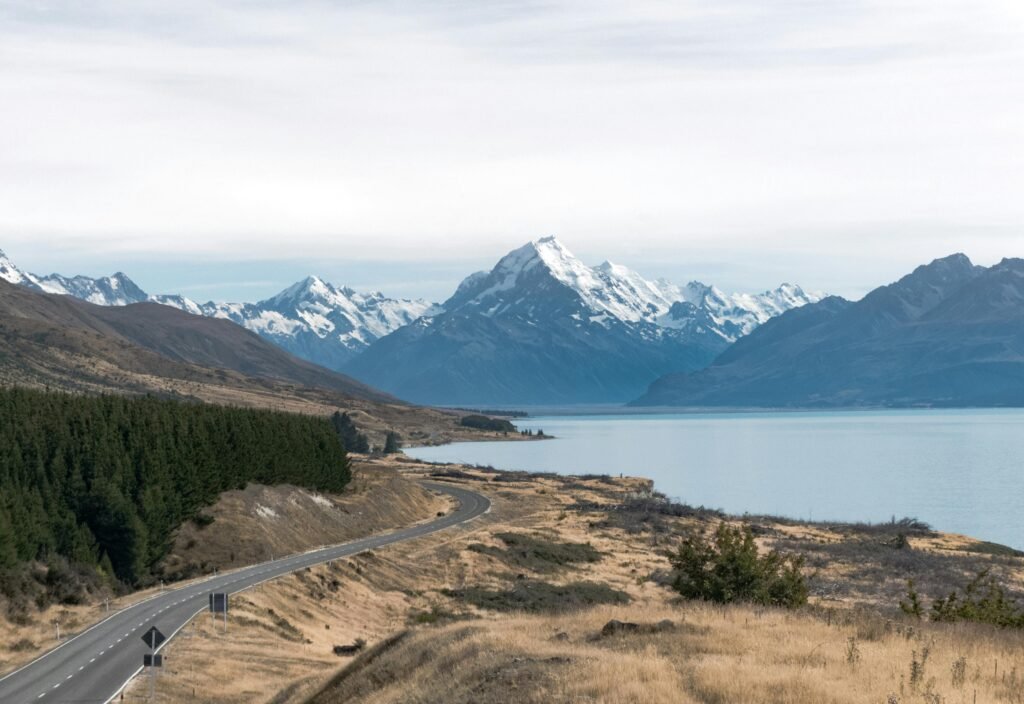Introduction to Responsible Travel
Responsible travel is increasingly recognized as a fundamental approach to exploring destinations, particularly in regions of high ecological and cultural significance such as New Zealand. Defined primarily as a form of tourism that seeks to minimize negative impact while maximizing positive contributions to local communities and environments, responsible travel champions sustainability and cultural respect. This practice is not only essential for preserving natural landscapes but also for maintaining the unique cultural identities of indigenous peoples, especially the Māori in New Zealand.

The importance of responsible travel cannot be overstated in the context of New Zealand, often referred to as the Land of the Long White Cloud. As tourism continues to grow, the need to balance visitor numbers with the conservation of natural resources and the protection of cultural heritage becomes paramount. This necessity arises from the important role tourism plays in New Zealand’s economy, while concurrently posing potential threats to its pristine ecosystems and rich traditions.
Travelers are encouraged to adopt responsible travel practices by being mindful of their environmental footprint, demonstrating respect for local customs, and supporting sustainable businesses. These practices may include choosing eco-friendly accommodations, engaging with the local culture meaningfully, and ensuring that outdoor activities do not disturb wildlife habitats or natural resources. The concept of responsible travel encompasses the philosophy that every traveler should strive to leave a positive mark on their chosen destination, not merely as tourist passers-by, but as educated and conscious visitors contributing to overarching sustainability goals.
Through this lens, the following sections of this blog will delve deeper into various aspects of responsible travel, emphasizing practical strategies and insights that can facilitate an enriching, sustainable experience while exploring New Zealand’s diverse offerings.
Understanding New Zealand’s Unique Ecosystem
New Zealand is renowned for its striking natural beauty, deeply intertwined with its unique ecosystems, which boast a wide variety of flora and fauna. With its isolated geographic location, the country has developed an impressive array of endemic species that are not found anywhere else in the world. This includes remarkable birds such as the kiwi, the tui, and the endangered kakapo, as well as stunning plant life like the giant kauri trees that serve as vital components of this ecological tapestry. The diverse climates across the North and South Islands further enhance the complexity of its ecosystems, ranging from lush rainforests to arid grasslands.
However, this distinctive biodiversity is under constant threat due to invasive species, climate change, and urban development. As awareness of these challenges grows, so too does the importance of conservation efforts to protect these invaluable resources. Numerous organizations and initiatives have been established to preserve habitats, educate the public, and restore ecosystems across the nation. Travelers have a significant role to play in this landscape, as their choices can directly impact conservation efforts.
Responsible travel in New Zealand involves appreciating and respecting the environment. Visitors are encouraged to support eco-friendly tours, participate in conservation programs, and adhere to guidelines that protect wildlife and habitats. Simple actions, such as staying on marked trails, properly disposing of waste, and avoiding interactions with wildlife, contribute to the preservation of these ecosystems. By conscious efforts to minimize their environmental footprint, travelers can enjoy the stunning landscapes and rich biodiversity of New Zealand while promoting sustainable practices.
Cultural Heritage and the Māori Perspective
Māori culture holds a profound significance in New Zealand, deeply embedded in the country’s identity and essence. As the indigenous people of Aotearoa, the Māori possess a rich heritage characterized by unique traditions, values, and communal structures. Understanding and respecting this culture is crucial for travelers seeking an authentic experience in the land of the Long White Cloud.
The Māori have a strong connection to their ancestors and the land, reflected in their worldview known as “Te Ao Māori.” This perspective emphasizes the importance of community and kinship, known as “whānau,” as well as the values of “manaaki” (hospitality) and “tūhonohono” (connecting with others). By embracing these values, travelers can create meaningful interactions with Māori communities, enriching their journey while fostering respect for indigenous cultures.
Engagement with Māori traditions can take various forms, from participating in a traditional pōwhiri (welcome ceremony) to experiencing haka performances that showcase the strength and history of Māori warriors. Many guided tours incorporate elements of Māori culture, providing insights into their customs, arts, and language, particularly the significance of “te reo Māori,” the Māori language. Exploring these aspects not only deepens one’s understanding but also contributes to the preservation of Māori heritage, contributing to a sustainable tourism model.
Furthermore, opting for tour operators and activities that are culturally sensitive and led by Māori individuals promotes ethical travel practices. Such choices not only enrich the travel experience but also generate financial support for these communities, facilitating the ongoing revitalization of their culture amidst globalization. As visitors immerse themselves in the stories and practices of the Māori, they not only become witnesses to a living culture but also advocates for its continued survival in an ever-changing world.
Sustainable Transportation Options
Travelers seeking to explore the breathtaking landscapes and vibrant cities of New Zealand can significantly reduce their carbon footprints by choosing eco-friendly transportation methods. The nation boasts a robust public transport system, making it an ideal choice for those looking to navigate its cities and regions sustainably. Buses and trains provide efficient and cost-effective means of travel, connecting major urban centers and picturesque destinations. For instance, the KiwiRail Scenic Journeys offer vistas of unparalleled beauty along routes such as the Coastal Pacific and TransAlpine, allowing passengers to absorb the natural splendor while minimizing their environmental impact.
Cycling is another excellent alternative for eco-conscious travelers. New Zealand features an extensive network of cycle trails designed for both leisure and adventure rides, promoting an active lifestyle while ensuring minimal disruption to the environment. The Otago Central Rail Trail and the Twin Coast Cycle Trail are two examples of routes that allow cyclists to engage with the local ecology and culture intimately. Renting bikes not only supports local economies but also enhances the travel experience, as navigating the scenic landscapes at a leisurely pace can lead to discoveries often missed when traveling by car.
For those keen to drive, electric vehicle rentals are increasingly available across New Zealand, providing an environmentally friendly option for road trips. Charging stations can be found in many towns and tourist attractions, making it convenient for travelers to power up their vehicles. By opting for electric vehicles, tourists contribute to reducing emissions, thus protecting the natural environment that draws millions to New Zealand each year. In embracing these sustainable transportation options, travelers not only enjoy the diverse beauty of New Zealand but also play a vital role in preserving it for future generations.

Choosing Environmentally Friendly Accommodations
When planning a trip to New Zealand, selecting environmentally friendly accommodations is crucial for minimizing your ecological footprint while enjoying the unique beauty of the Land of the Long White Cloud. Opting for sustainable lodges, hostels, or camping sites that adhere to eco-certification standards can significantly impact the local environment and communities.
First, travelers should familiarize themselves with various eco-certifications that indicate an accommodation’s commitment to sustainability. For instance, the EarthCheck and Green Globe certifications are widely recognized in New Zealand. These certifications ensure that the property implements rigorous environmental policies, including waste minimization, energy efficiency, and water conservation practices. Relying on these credentials can help travelers identify genuine green options that prioritize sustainability over mere marketing claims.
Staying in eco-friendly accommodations typically offers numerous benefits beyond environmental advantages. Many sustainable lodges utilize local materials, providing a unique architectural style that reflects New Zealand’s natural environment. Additionally, these accommodations often support local communities by sourcing produce and products from local vendors, thus contributing to the regional economy. By choosing to stay in such places, travelers can enhance their experience with a deeper connection to the local culture and its inhabitants.
Furthermore, eco-conscious accommodations often provide opportunities for visitors to engage in sustainable activities or contribute to conservation efforts. For example, some lodges may offer guided nature walks, educational programs on local flora and fauna, or volunteer opportunities for travelers to assist in preservation projects. Such experiences can enrich your trip, allowing you to genuinely participate in the region’s protection and wellness.
In summary, choosing environmentally friendly accommodations in New Zealand is beneficial both for the environment and for your travel experience. By prioritizing eco-certifications, travelers can ensure that their choices align with sustainable practices, ultimately fostering a greater appreciation for the natural wonders of New Zealand.
Supporting Local Communities and Businesses
Traveling responsibly in New Zealand is not merely about respecting the environment; it also entails uplifting and supporting local communities. One of the most effective ways to positively impact these communities is by opting for tours led by local guides. Local guides possess in-depth knowledge of the area, providing insights into the culture, history, and natural beauty of New Zealand that outsiders might overlook. By choosing local operators, travelers help keep the economic benefits within the community and foster sustainable tourism practices.
Another significant way to support local communities is by purchasing products from indigenous artisans. New Zealand is rich in culture, particularly among the Māori communities, whose handicrafts—ranging from traditional weaving and carving to contemporary art—are not only beautiful but also hold deep cultural significance. By investing in these authentic products, travelers contribute to the preservation of these traditional practices. This not only provides a source of income for the artisans but also encourages the continuation of their cultural heritage.
Dining at restaurants that prioritize locally sourced ingredients is another essential practice for responsible travel in New Zealand. Many excellent eateries support local farmers and fishermen, ensuring that their food offerings reflect the rich biodiversity of the region. Eating locally not only enhances the dining experience with fresh and flavorful options but also reduces the carbon footprint associated with transporting food over long distances. Furthermore, this approach directly benefits the local economy, providing jobs and encouraging sustainable agricultural practices.
In conclusion, by emphasizing local guides, supporting indigenous artisans, and choosing to eat locally, travelers can significantly enhance their positive impact on New Zealand’s communities. Engaging in these practices allows tourists to engage deeply with the culture while ensuring their travel experiences contribute to the well-being of those they visit.
Engaging in Responsible Outdoor Activities
New Zealand boasts an array of stunning landscapes, making it a prominent destination for outdoor enthusiasts. Engaging in responsible outdoor activities not only allows individuals to appreciate the beauty of the land but also plays a crucial role in preserving its natural resources for future generations. Sustainable practices while enjoying hiking, kayaking, and wildlife watching are paramount to ensure that the environment remains robust and unspoiled.

Hiking, a popular endeavor in New Zealand, offers various trails, ranging from easy walks to challenging hikes across majestic mountains and lush valleys. To promote responsible hiking, visitors should stick to marked trails to minimize environmental impact, avoid littering, and respect local wildlife habitats. Utilizing reusable water bottles and snacks can significantly reduce single-use plastics, contributing to the conservation of pristine environments.
Another refreshing way to explore New Zealand’s vast waterways is through kayaking. This activity not only showcases the breathtaking coastal scenery but also allows for quiet and unobtrusive wildlife observation. Kayakers should adhere to guidelines that prioritize minimal disturbance to the local ecosystem, such as maintaining a safe distance from marine mammals and nesting birds. Additionally, choosing eco-friendly kayak rentals ensures that the equipment used does not contribute to pollution.
Wildlife watching serves as a unique opportunity to observe various native species, including dolphins, whales, and birds, all of which depend on their natural habitat. When participating in wildlife tours, selecting operators who follow ethical practices is critical. Responsible wildlife tours emphasize the significance of maintaining a respectful distance from animals and minimizing noise pollution. Such measures not only enhance the experience but also safeguard the wellbeing of the wildlife being observed.
By engaging in outdoor activities with a focus on sustainability, visitors to New Zealand can significantly contribute to protecting this remarkable environment. Sharing knowledge and awareness about sustainable practices is essential, as collective effort can ensure that the natural beauty of New Zealand remains intact for all to enjoy.
Best Practices for Waste Management
When traveling in New Zealand, it is imperative to implement effective waste management practices to minimize one’s environmental impact. The principle of leaving no trace is fundamental, particularly in the pristine natural areas that the country is renowned for. One of the most effective strategies is the use of reusable items. Tourists are encouraged to carry reusable water bottles, coffee cups, and shopping bags. This not only reduces the demand for single-use plastics but also promotes a sustainable lifestyle.
Moreover, proper disposal of trash is crucial. Travelers should familiarize themselves with local waste disposal guidelines. In many areas, public and private facilities provide clearly marked bins for organic waste, recyclables, and general rubbish. It is essential for visitors to take note of these specifications to ensure that their waste is sorted correctly. In cases where appropriate disposal facilities do not exist, travelers should carry their waste with them until they reach a suitable location. This simple action contributes significantly to the preservation of New Zealand’s unique ecosystems.
Recycling practices are another vital component of waste management while traveling. Many cities and towns in New Zealand have robust recycling programs that travelers can utilize. Visitors should take the time to educate themselves about what materials can be recycled, ensuring they sort items accurately. Additionally, when engaging in outdoor activities, travelers should strive to leave natural areas as undisturbed as possible by avoiding disposables. Packaging waste should be minimized through planning, such as opting for food that requires less packaging.
Incorporating these waste management practices not only enhances the travel experience but also underscores a commitment to environmental stewardship. By prioritizing sustainability, travelers can contribute to the preservation of New Zealand’s breathtaking landscapes for future generations, ensuring the land of the Long White Cloud remains a cherished destination.
Conclusion: Embracing a Sustainable Travel Mindset
As we conclude our exploration of responsible travel in New Zealand, it is essential to reflect on the vital principles that underpin sustainable tourism. This beautiful country, often referred to as the Land of the Long White Cloud, offers unique ecosystems, rich cultural heritage, and breathtaking landscapes. By adopting a sustainable travel mindset, we can significantly contribute to preserving these assets for future generations.
Throughout this blog post, we have emphasized the importance of minimizing our environmental footprint while traveling. This includes engaging in practices such as reducing waste through proper disposal methods, choosing eco-friendly accommodations, and respecting the natural environment. Moreover, understanding and respecting local cultures enables travelers to contribute positively to the communities they visit. Engaging with indigenous cultures, such as the Māori, can enhance the travel experience while also promoting cultural preservation.
Travelers must recognize their role as stewards of the destinations they visit. By making informed decisions—like utilizing public transportation, supporting local businesses, and choosing sustainable activities—tourists can lead the way in advocating for responsible tourism. The collective impact of these thoughtful actions can result in substantial benefits not just for the environment, but also for local economies and communities.
Ultimately, the journey towards responsible travel is an ongoing commitment. As we embark on our adventures, let us carry forward the principles of sustainability and mindfulness, championing practices that protect and celebrate the natural beauty and cultural richness of New Zealand. By fostering a culture of responsible tourism, we can ensure that future generations can enjoy the wonders of this extraordinary land, reinforcing our connection to nature and each other.



